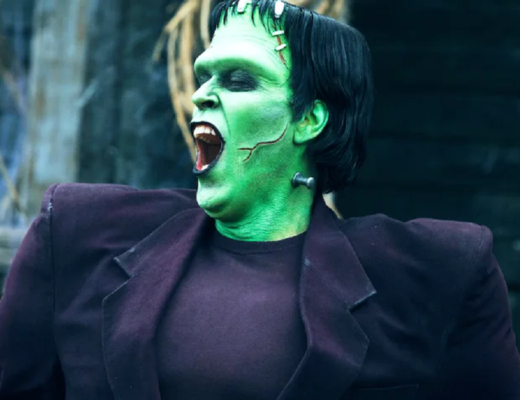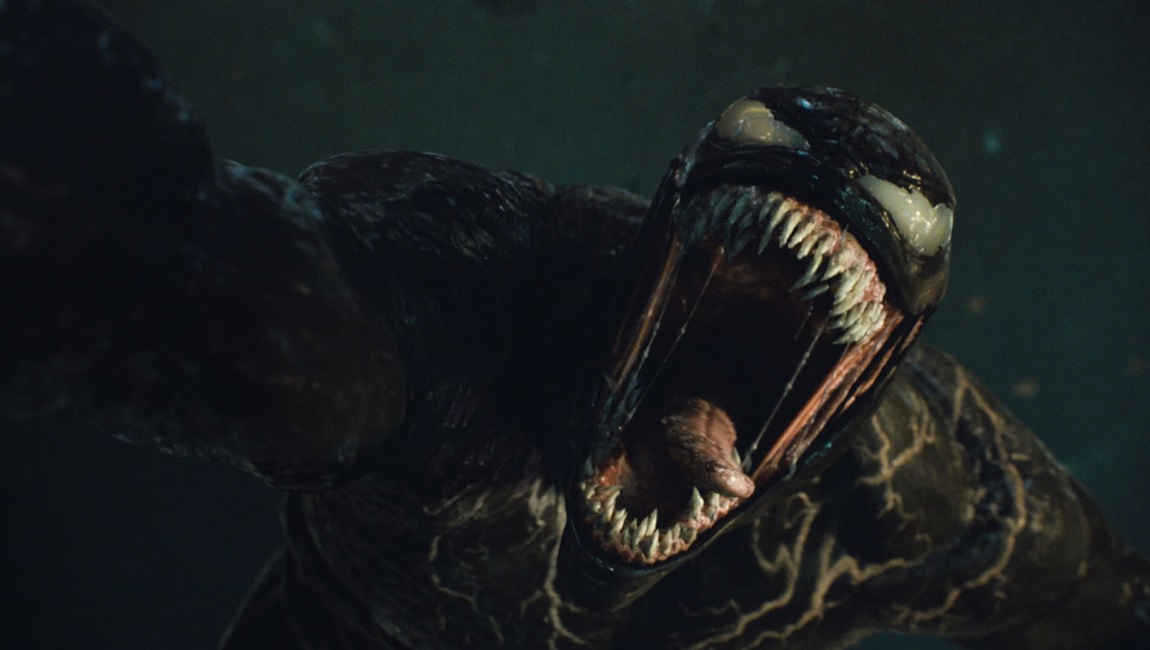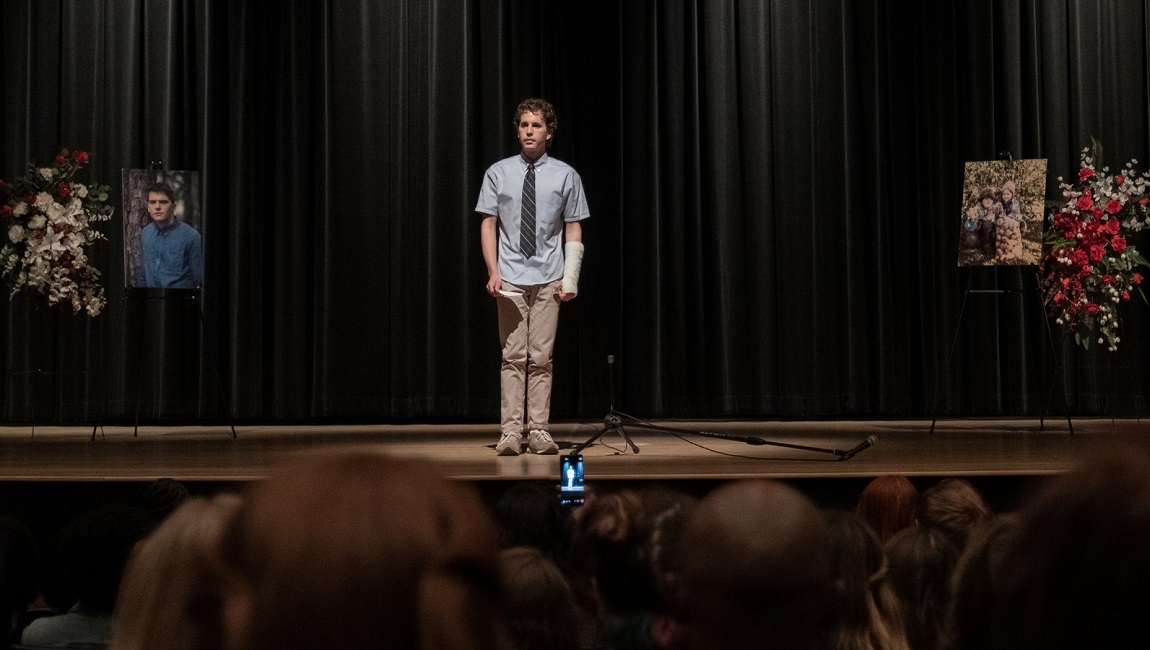Following the release of last year’s Blood Quantum, Rueben Martell’s Don’t Say Its Name is a welcome addition to the still-small genre of Indigenous horror. Here, a community in the mountains of Northern Canada is besieged by a violent specter that attacks its victims without warning and leaves a trail of bloody, eviscerated bodies in its wake. Beginning with a (seemingly unrelated) hit-and-run that leaves local activist Kharis Redwater (Sheena Kaine) dead, Officer Betty Stonechild (Madison Walsh) has to break the news to Kharis’ bereaved mother, Mary Lynne (Carla Fox). Betty already has her hands full dealing with her teenage nephew, Ben (Samuel Marty), and a well-meaning white cop named Andy (Justin Lewis) who has access to lab facilities that the tiny tribal department doesn’t. But before Kharis’ body has even been buried, a young couple is attacked in the middle of the woods. The woman, a surveyor for mining company WEC, has been ripped open, and her fiancé is in shock, claiming he saw and heard nothing except for geysers of blood. Betty has been around domestic violence for her entire life, and is ready to chalk it up to a case of a drunk man abusing his girlfriend. Soon, however, there’s another attack, this time targeting a male victim. His girlfriend says the same thing as before — no warning, no sound, an apparently invisible killer. At this point, Betty decides she needs some help, and so she deputizes Stacey Cole (Sera-Lys McArthur), a local game warden and former soldier suffering from PTSD after her time in Afghanistan. Stacey seems to have some idea about what’s going on, but fearful that Betty won’t accept something supernatural in origin, she approaches her uncle, Carson Stonefeather (Julian Black Antelope). Carson is also a town elder, a believer in legends and folklore, and he and Stacey set out to catch or kill this ghostly predator. The film’s plot alternates between police procedural, as Betty investigates the initial hit-and-run and how it ties in with WEC’s underhanded mining efforts, and ghost story, as Stacey and Carson realize they’ve gone up against more than they can handle.
It’s all engrossing enough, despite some bumps along the way. The screenplay in particular is occasionally rough, as characters tend to speak in unnatural sounding declarative sentences and shoehorn in awkward exposition (it’s the kind of film where characters will state their relationships to each other solely for the benefit of the audience). It’s mostly a good-looking film, with a few awkward stylistic flourishes that detract more than they add, like Stacey’s PTSD being visualized via wailing electric guitar solos and the sounds of helicopters on the soundtrack. And it doesn’t take a genre expert to figure out where the story is heading long before it gets there. Still, there’s much to like as well: Walsh and McArthur make for appealing leads, both no-nonsense, take-no-shit professionals who square off with danger without hesitation, there’s ample gore on display, and at least one exquisitely timed jump-scare. It’s a unique and fully-realized milieu, chock full of realistic, lived-in detail. When communities ask for more inclusive films, this is the kind of thing they’re talking about, where the specificity of the lives behind and in front of the camera adds texture to otherwise run-of-the-mill creature features. So much so in fact that one can imagine a straightforward, dramatic version of the film, where a put-upon local cop must deal with shady corporations, implicit and explicit racism, and white folks butting in where they’re not wanted. It’s a small film, certainly, but Don’t Say Its Name speaks to the great potential out there when boundaries are pushed and horizons expanded.
Published as part of Fantasia Fest 2021 — Dispatch 6.







